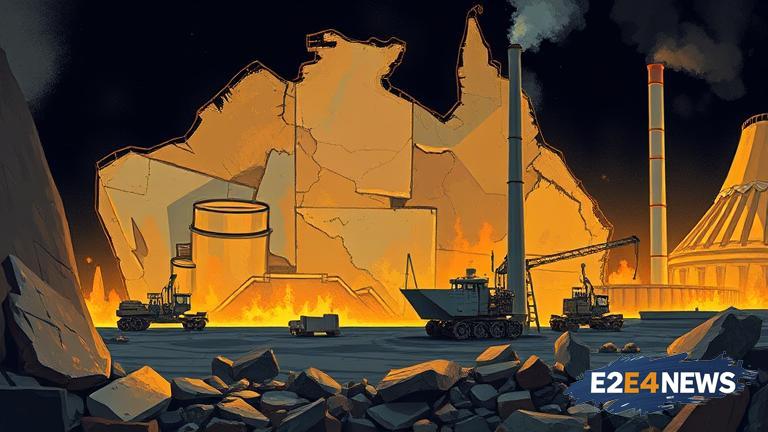The Australian government has unveiled a new initiative to support the country’s smelting industry, with the goal of increasing critical mineral production and reducing dependence on foreign supplies. This move is part of a broader effort to strengthen Australia’s position in the global critical minerals market. Critical minerals, such as lithium, cobalt, and nickel, are essential components in the production of renewable energy technologies, including solar panels, wind turbines, and electric vehicle batteries. By investing in smelter technology and infrastructure, the Australian government aims to increase domestic production of these critical minerals and reduce the country’s reliance on imports. The initiative is expected to create new jobs and stimulate economic growth in regional areas where smelting operations are located. The Australian government has recognized the importance of critical minerals in the transition to a low-carbon economy and is taking steps to ensure a stable and secure supply of these materials. The country is already a significant producer of critical minerals, but the government believes that there is potential for further growth and development. The smelter support program will provide funding for companies to upgrade their facilities and adopt new technologies, enabling them to produce higher-quality critical minerals and increase their competitiveness in the global market. The initiative is also expected to attract new investment to the sector, as companies look to capitalize on the growing demand for critical minerals. Australia’s critical mineral industry is expected to play a key role in the country’s economic future, with the government forecasting significant growth in the sector over the coming years. The smelter support program is part of a broader package of measures aimed at supporting the development of Australia’s critical mineral industry. The government has also established a critical minerals taskforce, which will work to identify new opportunities for growth and development in the sector. The taskforce will bring together industry experts, researchers, and government officials to develop a comprehensive strategy for the critical minerals industry. The strategy will focus on increasing production, improving processing and manufacturing capabilities, and developing new markets for Australian critical minerals. The Australian government is also working to strengthen its relationships with other countries to secure new markets and investment opportunities for the critical minerals industry. The country has already signed agreements with several nations, including the United States, Japan, and South Korea, to cooperate on critical minerals development and trade. The agreements aim to promote the development of secure and stable supply chains for critical minerals and to support the growth of the industry in Australia and other partner countries. The Australian government’s support for the smelting industry is a significant step forward for the critical minerals sector, and is expected to have a positive impact on the country’s economy and environment. By increasing domestic production of critical minerals, Australia can reduce its reliance on foreign supplies and decrease its carbon footprint. The initiative is also expected to create new opportunities for regional development and job creation, as smelting operations are often located in rural areas. The smelter support program is a key component of the Australian government’s plan to develop a thriving and sustainable critical minerals industry, and is expected to play a major role in shaping the country’s economic future. The government’s commitment to the sector is a significant vote of confidence in the potential of critical minerals to drive growth and development in Australia. As the global demand for critical minerals continues to grow, Australia is well-positioned to become a leading supplier of these essential materials.
